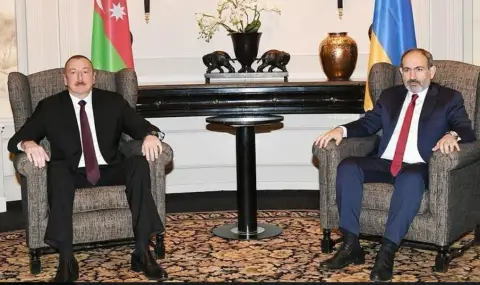The end of the Armenia-Azerbaijan war in 2020 created a unique opportunity to establish sustainable peace and ensure a safer, more secure and prosperous South Caucasus . There was, and still is, a huge chance to end hostilities and reshape the region into one characterized by good-neighborly relations and mutually beneficial cooperation.
In contrast to ongoing negotiations on the normalization process between the two nations, the provision presuming territorial claims over Azerbaijan's Karabakh region enshrined in Armenia's constitution is considered by official Baku to be a constant threat to Azerbaijan's sovereignty and remains the main obstacle to the achievement of a final peace treaty.
Baku and Yerevan exchanged the draft peace treaty 10 times, with some of the agreed provisions signaling progress. However, Armenia's unexpected offer to sign the partially settled document was met with bewilderment by Azerbaijan. President Aliyev criticized Armenia for sabotaging the process, noting that they received Armenia's latest comments with key unresolved provisions removed. According to him, the latter is unsatisfactory, since the excluded provisions are of paramount importance for the achievement of sustainable peace. He further expressed concern that Armenia's disingenuous approach, coupled with its recent militarization, apparent desire for revenge, and maneuvers aimed at delaying the peace process, suggest that Armenia is not pursuing genuine peace, but rather buying time to increase its military capacity and potentially renew the conflict.
Another major factor delaying the peace talks is the presence of strong revanchist groups in Armenia aiming to regain lost territories. These groups openly express hopes for a return to hostilities with Azerbaijan when the geopolitical situation becomes more favorable. This sentiment is fueled by the diaspora, political opposition and religious groups, and reinforced by increasing arms supplies from countries such as France, India and Iran. It should be noted that in recent years, Armenia has almost doubled its military budget and signed military supply contracts worth billions of euros. This spending is reportedly being financed by its growing bilateral trade with Russia, which jumped from $2.3 billion in 2020 to $7.4 billion in 2023, with forecasts to exceed $16 billion by the end of 2024 d. This sharp rise in trade is largely due to Armenia's role in helping Russia circumvent Western sanctions by re-exporting restricted products.
External threats to the process of normalizing Armenia-Azerbaijan relations and ultimately achieving a more integrated South Caucasus are potentially even more dangerous. Global and regional powers are pursuing their own strategic interests, which directly affects the ongoing peace process, among other regional issues.
The reasons for the delay seem clear, with a combination of internal and external factors making the process significantly more difficult. Key domestic factors include Armenia's continued territorial claims to Azerbaijan, the pressing need for constitutional reforms that remain unresolved, and the activities of revanchist groups that resist change.
